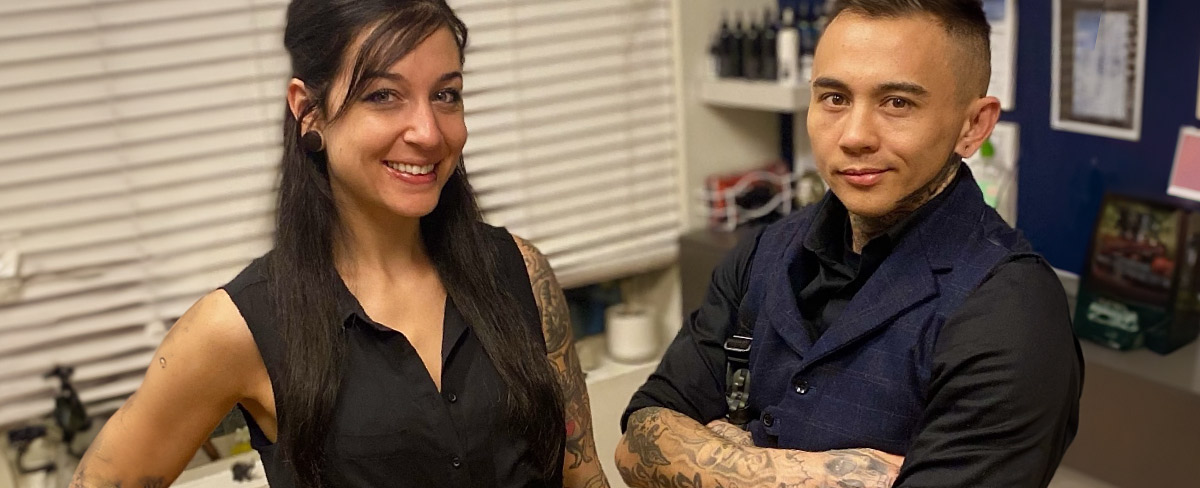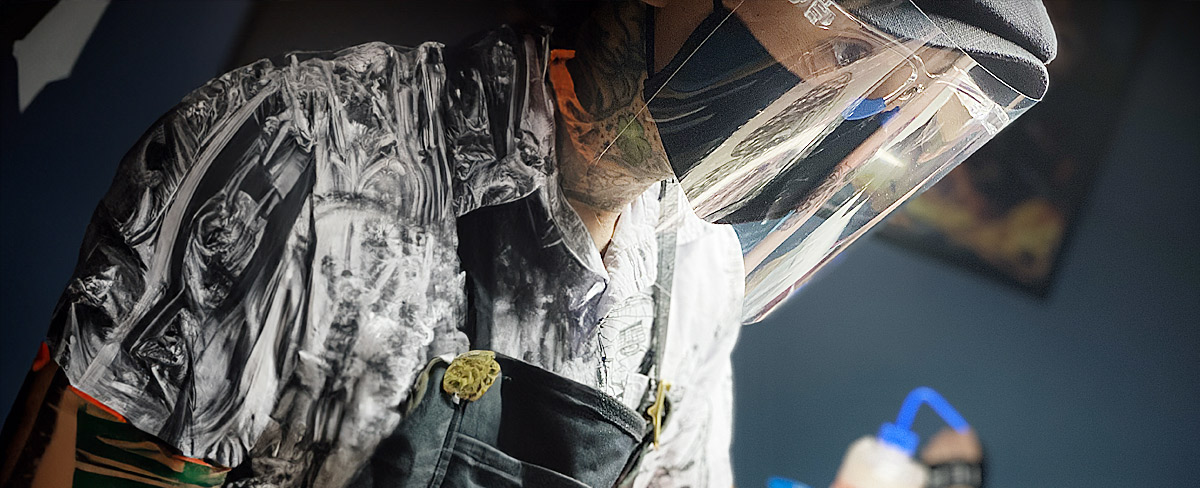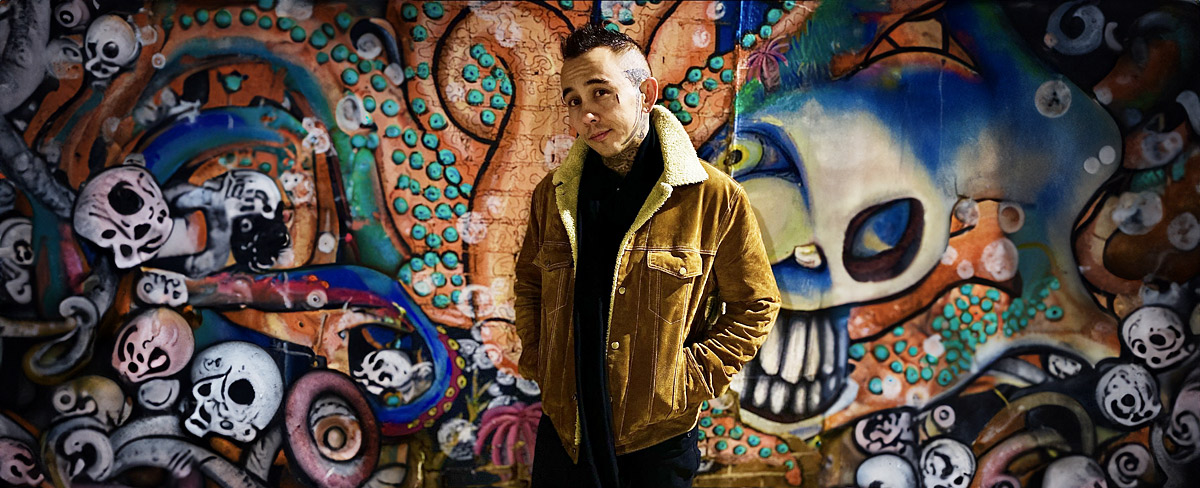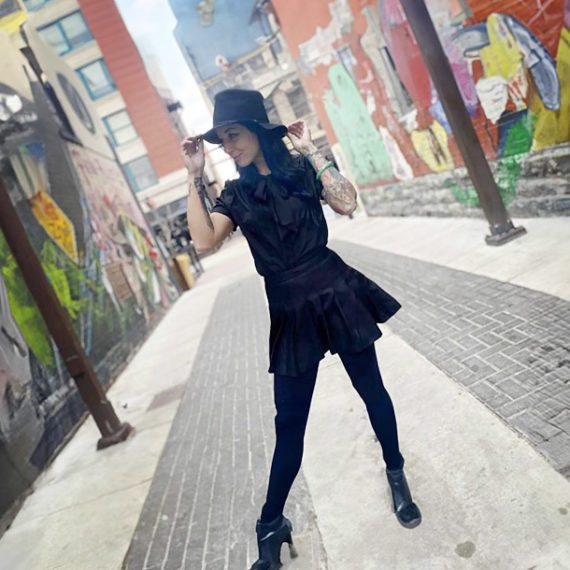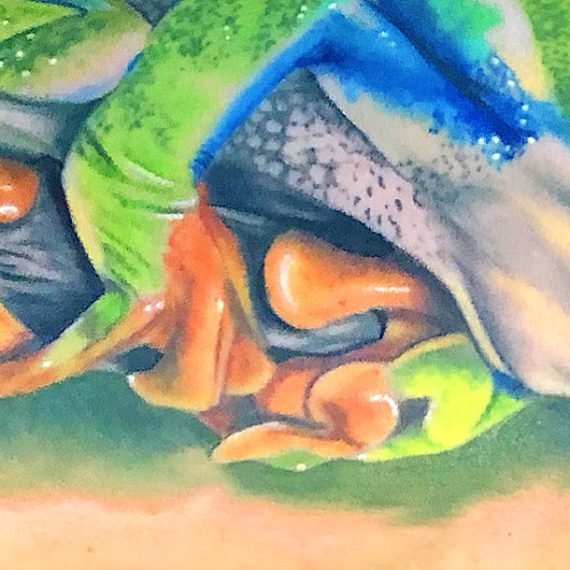How much will my tattoo cost?
This is always a question on everyone’s minds when getting a tattoo. Many people don’t actually ask the question in detail or know how their tattoo cost was calculated. When you get a tattoo you can use this guide to help you get a general idea for what it might cost you.
The short answer to how tattoo’s are priced.
Tattoo pricing can vary widely depending on a variety of factors. These include the complexity of the design, the color versus black and grey, the experience and popularity of the artist, the geographical location of the studio, and more.
Also, many tattoo artists don’t charge based on size alone. They consider the complexity of the design, the time it will take, and the materials needed. Some may have a minimum charge regardless of size. In general, tattoos are often priced by the hour, and hourly rates can range anywhere from $50 to $300.
Basic tattoo prices by size
These are the really elementary level pricing averages for tattoos by sizes. It’s almost the idiot’s first guide to tattoo costs.
1×1 inch:
Given that most artists have a minimum charge, a small tattoo of this size would generally fall into that category. This could range from $50-$200 depending on the artist and studio.
3×3 inch:
This size of tattoo might range from $100-$400, again depending on the complexity of the design and other factors.
5×5 inch:
A medium-sized tattoo might fall in the range of $200-$600.
Full Sleeve:
A full sleeve, which takes multiple sessions and many hours, could range from $1,000-$7,000. The wide range is due to factors like design complexity and artist rates.
Full Chest:
A full chest piece could cost anywhere from $1,500-$18,000, again depending on various factors such as design complexity and artist rates.
Full Back:
A full back tattoo, which is a large piece and requires many hours of work, could range from $2,000-$10,000.
What factors effect the price of a tattoo?
Artist’s Experience and Reputation:
More experienced and renowned artists typically charge more for their services. If an artist is well-known or has won awards, they might have a higher rate.
Design Complexity:
Simpler designs are generally less expensive, while intricate, complex designs that require more time and effort from the artist are more costly.
Size:
Larger tattoos require more time and materials, and so they typically cost more.
Color or Black and Grey:
Color tattoos usually take longer and require more skill to execute than black and grey tattoos, which can lead to higher costs.
Location on the Body:
Some parts of the body are more challenging to tattoo than others. For example, areas with more sensitive skin or tighter curves may take longer to tattoo and can therefore be more expensive.
Studio Location:
Tattoo prices can vary significantly by geographical location. Studios in cities or regions with a higher cost of living typically charge more.
Custom vs. Flash Design:
Custom designs, where the artist creates a unique piece just for you, are usually more expensive than flash designs, which are pre-designed pieces that you might choose off the wall in the studio.
Time Required:
Many artists charge by the hour, so the longer your tattoo takes, the more it’ll cost. However, some may offer a ‘day rate’ for longer sessions.
Aftercare Products:
Some studios may include aftercare products in the total cost of the tattoo, while others may charge for them separately.
Remember that when getting a tattoo, it’s important not to choose an artist solely based on price. Quality, safety, and the skill of the artist should be your main considerations. A well-done tattoo is worth the investment, as it’s something you’ll carry on your skin for life.
Tattoo Complexity
These are the types of complexities which really increase a tattoo’s price.
Simple Designs:
These designs typically include minimal lines, limited or no shading, and less detail. Examples might be small symbols, basic shapes, letters or numbers, or minimalist art. Simple designs generally take less time and are therefore less expensive. However, because these designs often rely on strong, clean lines, there’s little room for error and they still require a skilled artist.
Intermediate Designs:
These designs incorporate more detail and shading compared to simple designs. They might include more intricate symbols or lettering, small color pieces, simple floral or animal designs, or small portraits. These require more time and skill, especially if color is involved.
Complex Designs:
These are typically larger and contain a high level of detail. Complex designs might include realistic portraits, large-scale floral or animal designs, intricate patterns or mandalas, and scene depictions. The use of color shading and gradients also increases complexity. These designs require a highly skilled artist and more time to execute, and therefore typically cost more.
Hyper-Realistic Designs:
These are some of the most complex tattoos and aim to replicate a photo or image as accurately as possible on the skin. This might include realistic portraits, animal designs, or even scenery. This type of work requires a highly skilled and experienced artist, as well as significant time investment, and will typically be among the most expensive tattoo options.
Large Scale or Full Coverage Tattoos:
Designs that cover a large area of the body, like a full sleeve, back piece, or chest piece, are generally considered complex due to their size and the coordination needed to create a cohesive design across a large area. These often incorporate multiple elements, extensive shading or color work, and can require many hours and multiple sessions to complete.
Intricate Styles:
Certain tattoo styles inherently require more complexity. For example, biomechanical tattoos, which often mimic the intricacies of machinery or robotics, or micro-realism tattoos, which depict realistic imagery in a very small scale, require a high level of detail and precision.
The following is a rough list of the most expensive types of tattoo’s?
Portraits:
Realistic portrait tattoos, especially those that are hyper-realistic or larger in size, require an incredible amount of skill and time. They need to capture the minute details and shading to achieve a lifelike representation, making them one of the more expensive types of tattoos.
Large-Scale Tattoos:
Tattoos that cover a large part of the body, like a full sleeve, a full back piece, or a full chest piece, are often the most expensive. They take multiple sessions and many hours of work. They also often include intricate details and shading that add to the complexity and cost.
Realism:
Realistic tattoos strive to replicate images as accurately as possible. They often include intricate details and shading and require a high degree of skill and precision. This type of tattooing is usually more expensive due to its complexity and the time needed to create it.
Watercolor Tattoos:
This style attempts to mimic the effect of watercolor paint on the skin. It often involves multiple colors, unique shading techniques, and sometimes a lack of outlining, which can be more challenging and time-consuming for the artist, thus driving up the cost.
Micro-realism or Micro-tattoos:
While these tattoos might be small, they require an incredible amount of precision and skill to pack in the details, making them one of the more expensive types on a cost-per-size basis.
Tribal or Mandala Tattoos:
Complex tribal or mandala designs often include intricate patterns that require a lot of time and skill to execute. These tattoos can be large and might need several sessions, making them more expensive.
Biomechanical Tattoos:
This style often involves complex, three-dimensional designs that look like machinery or robotics underneath the skin. The shading and details needed for this type of tattoo can be quite time-consuming and challenging, adding to the cost.
Remember that pricing can vary based on the artist’s experience and reputation, geographical location, and the specific design and customization. When getting a tattoo, the focus should be on the quality of the work rather than the cost. After all, a tattoo is a lifelong investment.
